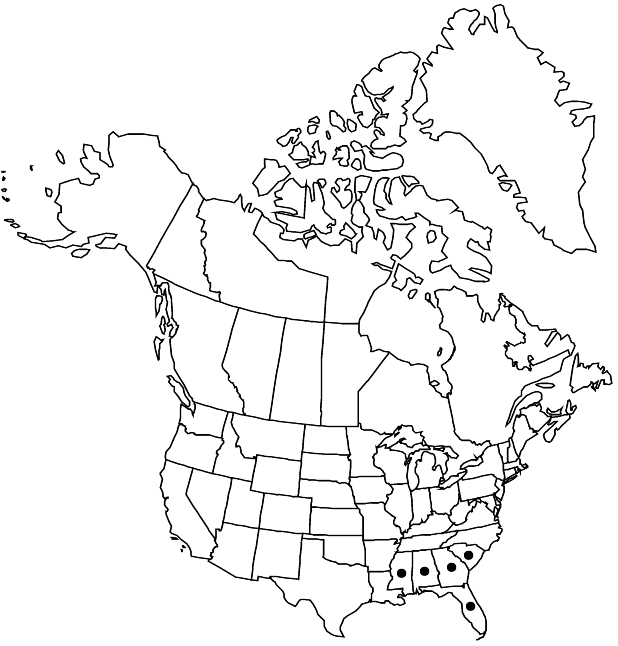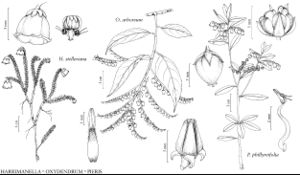Difference between revisions of "Pieris phillyreifolia"
in A. P. de Candolle and A. L. P. P. de Candolle, Prodr. 7: 599. 1839 ,.
FNA>Volume Importer |
imported>Volume Importer |
||
| (5 intermediate revisions by 2 users not shown) | |||
| Line 1: | Line 1: | ||
{{Treatment/ID | {{Treatment/ID | ||
|accepted_name=Pieris phillyreifolia | |accepted_name=Pieris phillyreifolia | ||
| − | |accepted_authority=(Hooker) | + | |accepted_authority=(Hooker) de Candolle |
|publications={{Treatment/Publication | |publications={{Treatment/Publication | ||
|title=in A. P. de Candolle and A. L. P. P. de Candolle, Prodr. | |title=in A. P. de Candolle and A. L. P. P. de Candolle, Prodr. | ||
| Line 7: | Line 7: | ||
}} | }} | ||
|common_names=Vine-wicky;climbing fetterbush | |common_names=Vine-wicky;climbing fetterbush | ||
| − | |basionyms={{Treatment/ID/ | + | |special_status={{Treatment/ID/Special_status |
| + | |code=F | ||
| + | |label=Illustrated | ||
| + | }}{{Treatment/ID/Special_status | ||
| + | |code=E | ||
| + | |label=Endemic | ||
| + | }} | ||
| + | |basionyms={{Treatment/ID/Basionym | ||
|name=Andromeda phillyreifolia | |name=Andromeda phillyreifolia | ||
|authority=Hooker | |authority=Hooker | ||
| + | |rank=species | ||
| + | |publication_title=Icon. Pl. | ||
| + | |publication_place=2: plate 122. 1837 | ||
}} | }} | ||
|synonyms={{Treatment/ID/Synonym | |synonyms={{Treatment/ID/Synonym | ||
|name=Ampelothamnus phillyreifolius | |name=Ampelothamnus phillyreifolius | ||
|authority=(Hooker) Small | |authority=(Hooker) Small | ||
| + | |rank=species | ||
}} | }} | ||
|hierarchy=Ericaceae;Ericaceae subfam. Vaccinioideae;Pieris;Pieris phillyreifolia | |hierarchy=Ericaceae;Ericaceae subfam. Vaccinioideae;Pieris;Pieris phillyreifolia | ||
| Line 38: | Line 49: | ||
-->{{#Taxon: | -->{{#Taxon: | ||
name=Pieris phillyreifolia | name=Pieris phillyreifolia | ||
| − | + | |authority=(Hooker) de Candolle | |
| − | |authority=(Hooker) | ||
|rank=species | |rank=species | ||
|parent rank=genus | |parent rank=genus | ||
| Line 52: | Line 62: | ||
|publication title=in A. P. de Candolle and A. L. P. P. de Candolle, Prodr. | |publication title=in A. P. de Candolle and A. L. P. P. de Candolle, Prodr. | ||
|publication year= | |publication year= | ||
| − | |special status= | + | |special status=Illustrated;Endemic |
| − | |source xml=https:// | + | |source xml=https://bitbucket.org/aafc-mbb/fna-data-curation/src/2e0870ddd59836b60bcf96646a41e87ea5a5943a/coarse_grained_fna_xml/V8/V8_972.xml |
|subfamily=Ericaceae subfam. Vaccinioideae | |subfamily=Ericaceae subfam. Vaccinioideae | ||
|genus=Pieris | |genus=Pieris | ||
Latest revision as of 22:47, 5 November 2020
Shrubs or vines, to 1 m, climbing to 10 m within fibrous bark of Taxodium or Chamaecyparis by means of flattened rhizomes that, at intervals, give rise to emergent branches; twigs multicellular stipitate-glandular-hairy, otherwise sparsely to moderately unicellular-hairy. Stems ± terete. Leaf blades ovate, elliptic, or slightly obovate, (1–)2–6(–7) × (0.3–)0.3–2(–2.7) cm, base narrowly cuneate to rounded, margins obscurely to clearly toothed, especially near apex, revolute, apex acute to rounded. Inflorescences axillary racemes, from near stem apex; bracteoles near apex to middle of pedicel. Flowers: calyx lobes 3.5–5 × 1–1.5 mm; corolla cylindric-urceolate, weakly 5-ridged, 6–8(–8.5) × 4–5 mm; filaments geniculate, 4–6 mm, glabrous; style strongly sunken into ovary apex. Capsules subglobose, 2.5–4 × 3.5–5.3 mm, glabrous; placentae central to nearly basal. Seeds angular-ovoid to obovoid or narrowly conic, not winged; testa cells isodiametric.
Phenology: Flowering winter–spring.
Habitat: Taxodium, Chamaecyparis, or broad-leaved swamps, wet depressions in pine forests
Elevation: 0-100 m
Distribution

Ala., Fla., Ga., Miss., S.C.
Discussion
Pieris phillyreifolia is the only viny member of the Ericaceae in the United States; like P. cubensis Small of Cuba and P. swinhoei Hemsley of China, it has more or less isodiametric testa cells; it has been placed in sect. Phillyreoides Bentham & Hooker f.
Selected References
None.
